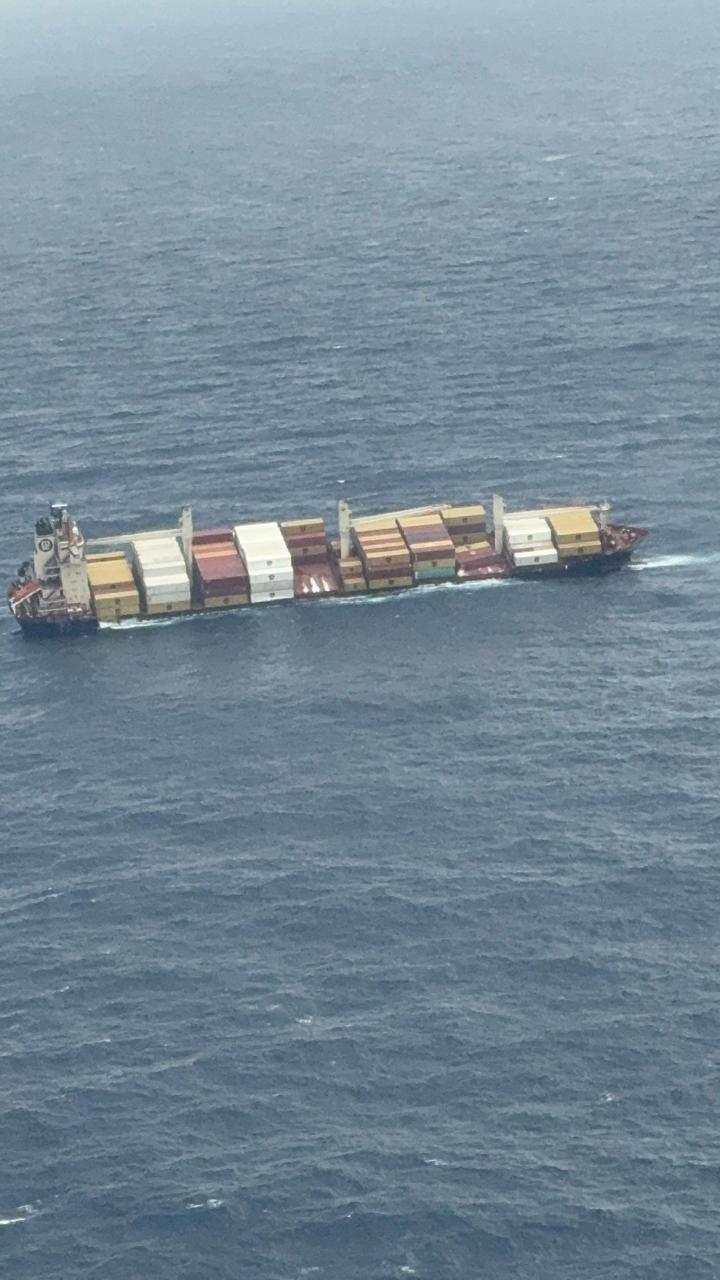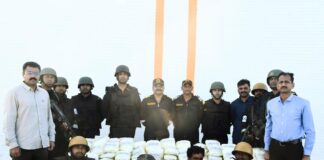Container Ship MSC ELSA 3 Tilts Off Kochi Coast
In the latest update, 21 crew members have been safely rescued from the tilting vessel. Three key officers—the Captain, Chief Engineer, and Second Engineer—remain onboard to support the ongoing and planned salvage operations.
Indian Coast Guard (ICG) ships and aircraft continue to closely coordinate and monitor the evolving situation. Some containers have reportedly fallen overboard due to the vessel’s tilt. A detailed risk assessment is currently underway. Authorities are making every possible effort to maintain the vessel’s stability and ensure safety as salvage planning progresses.
Container Vessel Develops Dangerous List Off Kerala Coast; Emergency Response Underway
A major maritime emergency unfolded off the southwest coast of India on Friday as a Liberia-flagged container ship, MSC ELSA 3, developed a severe tilt, known as a “list”- around 38 nautical miles southwest of Kochi. The 184-meter-long cargo vessel had departed Vizhinjam Port on May 23 and was scheduled to arrive in Kochi on May 24. However, at approximately 13:25 hours on Friday, the vessel reported a dangerous 26-degree list, prompting an immediate call for emergency assistance.
Table of Contents
Indian Coast Guard Launches Swift Rescue Operation for Distressed Crew
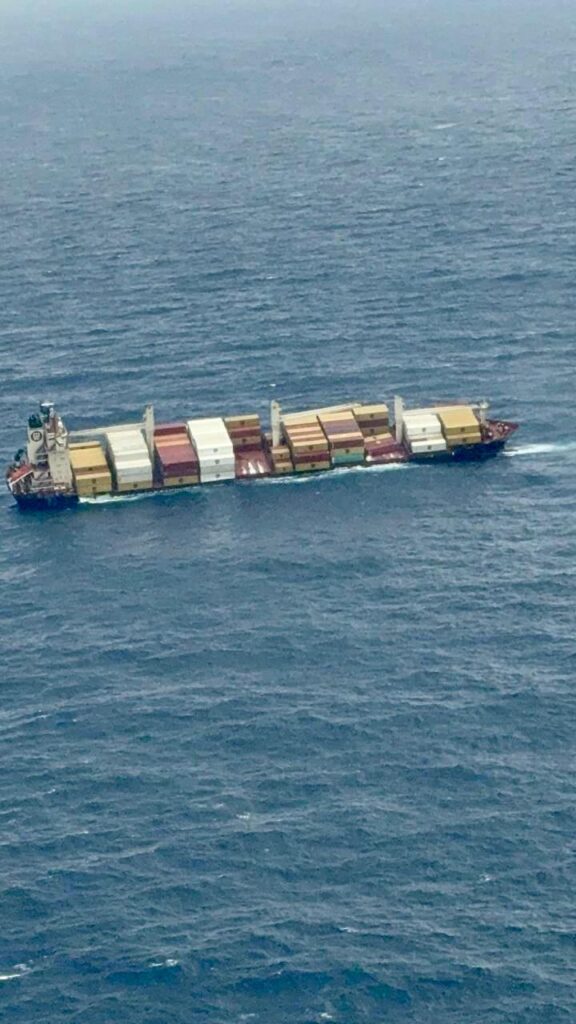
Following the distress alert from M/s MSC Ship Management, the Indian Coast Guard (ICG) rapidly mobilized its resources to initiate a high-priority rescue mission. Aircraft were dispatched to the scene, while nearby vessels were instructed to maintain proximity and support ongoing operations.
Out of the 24 crew members on board, nine abandoned the ship and took refuge in liferafts. Rescue teams are actively working to evacuate the remaining 15 seafarers from the unstable vessel. The Indian Coast Guard has deployed additional liferafts by air to assist with the ongoing evacuation effort.
Severe Tilt Raises Concerns Over Possible Environmental Threat
The significant 26-degree tilt of MSC ELSA 3 has sparked concerns not only for the safety of those onboard but also for the potential environmental impact. Though no cargo spillage or oil leak has been reported so far, the Indian Coast Guard and DG Shipping are closely monitoring the vessel to prevent any ecological damage.
“The situation is being tracked in real-time,” confirmed an official from the Coast Guard. “Our priority is to ensure zero casualties and mitigate any environmental risks that may arise from the vessel’s instability.”
DG Shipping Orders Urgent Salvage Support from Vessel Managers
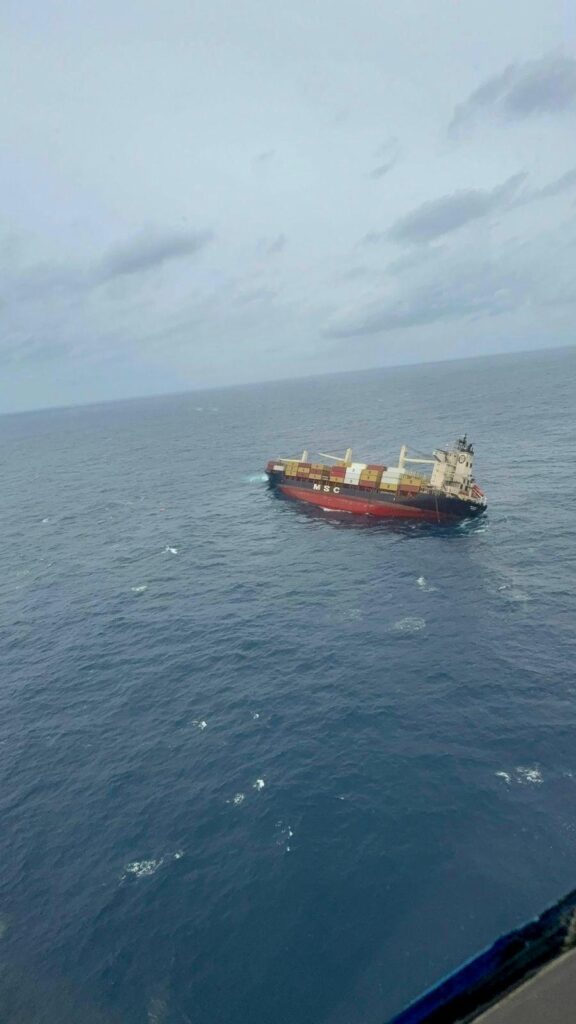
In coordination with the Indian Coast Guard, the Directorate General of Shipping (DG Shipping) has issued immediate directives to the ship’s managers to arrange urgent salvage operations. The vessel’s condition is considered critical, and preventive action is being taken to stabilize it and tow it to a safer location, if necessary.
Authorities are also assessing possible causes of the sudden list, which could range from cargo displacement to mechanical failure or water ingress. An official investigation is expected once the situation is under control.
Air and Sea Assets Deployed to Maximize Evacuation Success
The Indian Coast Guard has launched a multi-platform rescue strategy, combining aerial and maritime assets. Helicopters and surveillance aircraft are maintaining overhead coverage of the drifting container ship, while lifeboats and other support vessels remain on standby in the surrounding waters.
The prompt coordination among multiple agencies highlights India’s growing maritime response capabilities. In recent years, the Indian Coast Guard has significantly upgraded its equipment and training to deal with emergencies of this scale in the busy Indian Ocean shipping corridor.
Coastal Safety and Environmental Protection in Sharp Focus
Incidents such as the MSC ELSA 3 crisis underline the importance of robust maritime safety protocols and environmental safeguards. The Indian Coast Guard’s swift response serves as a model for regional preparedness, especially along the Kerala coastline, which sees high volumes of international marine traffic.
The authorities have reassured the public that no immediate environmental hazards have been detected, but precautionary measures remain in force to handle any fuel leakage or hazardous material risks that may arise.
What Happens Next: Investigation, Salvage and Safety Review
Once all crew members are accounted for and safe, salvage operations will focus on stabilizing the vessel and towing it to a designated anchorage for inspection. The DG Shipping will likely initiate a formal probe into the incident to determine the exact cause of the list and evaluate whether international maritime safety regulations were followed.
This incident could prompt a wider review of container ship safety in Indian waters and potentially lead to enhanced protocols for vessels traveling close to the Indian coastline.
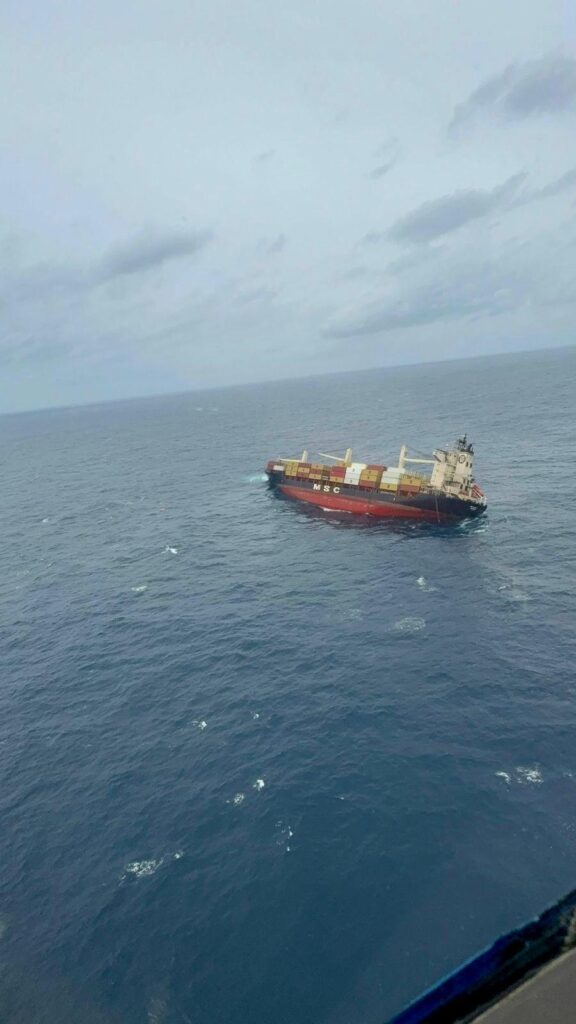
Conclusion: India’s Maritime Agencies Act Decisively in High-Stakes Emergency
The ongoing situation involving MSC ELSA 3 serves as a sobering reminder of the risks faced by seafarers and the critical role played by national maritime agencies. The Indian Coast Guard’s proactive rescue operation—marked by swift coordination, technical readiness, and environmental vigilance—has likely prevented a much larger disaster from unfolding in the Arabian Sea.
As the mission progresses, maritime authorities continue to prioritize the safety of the crew, protection of marine ecosystems, and preservation of navigational safety along one of India’s busiest coastal regions.




